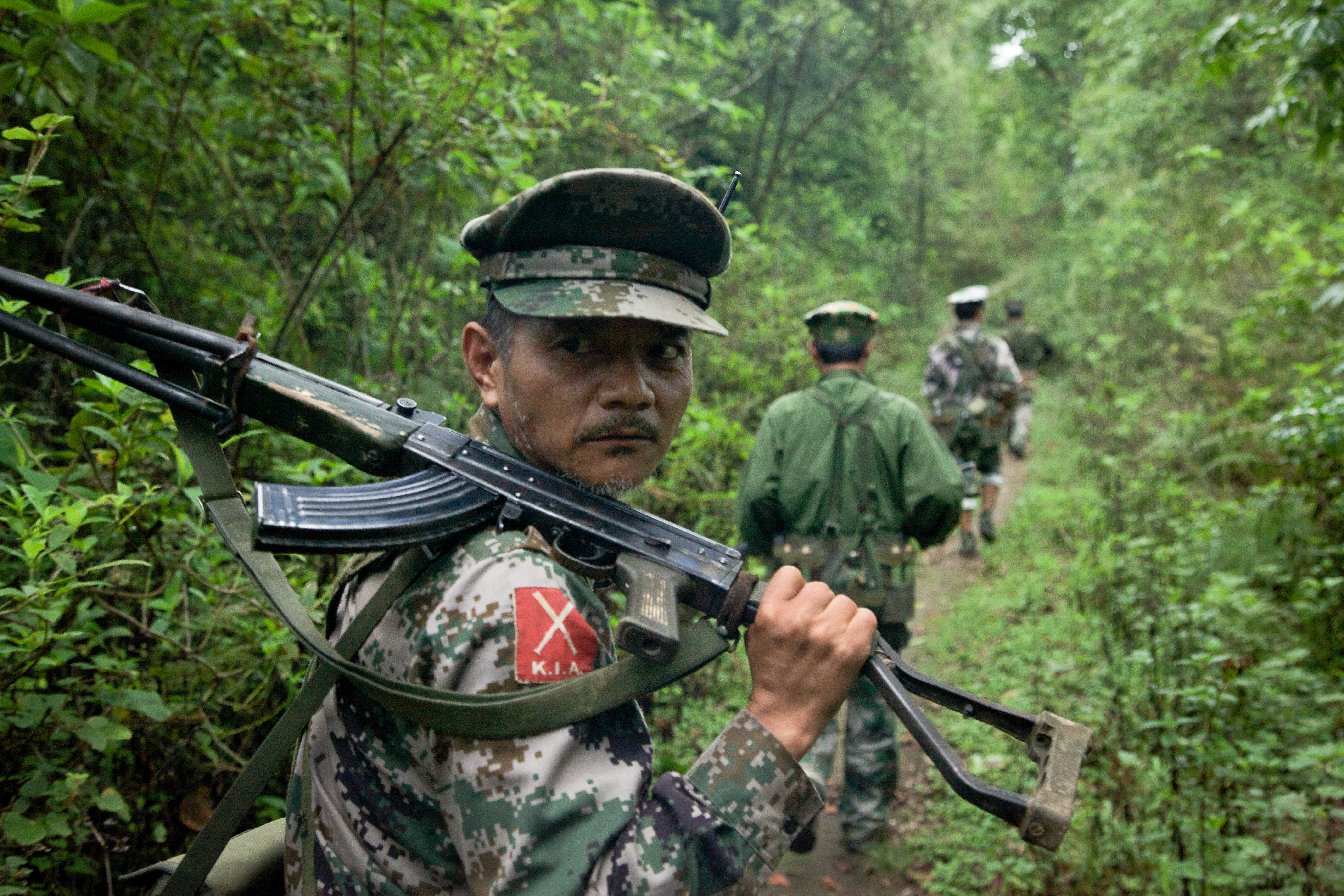
Burma's new capital, Naypyitaw, sits about halfway between Yangon and Mandalay, in the central plains that span the country's two largest cities. Getting there involves a five-hour drive on a shoddy military-built highway whose only feature is a rest stop at the midway point. There are no propaganda billboards en route touting the glories of the state, which arbitrarily moved the capital six years ago.
Our fixer, Kaiza, had arranged a rare interview in the capital with U Htay Oo, secretary-general of the military-backed Union Solidarity and Development Party (USDP). He recalled showing up on time the last time he'd made the trip with a foreign journalist. After a three-hour wait at party headquarters, the press secretary told him they'd better go out for a coffee. They came back and waited an hour more.
This time, we arrived an hour late and it didn't matter; Oo had yet to emerge from a session of parliament. We were advised to drive around for a while and "see the sights." Rumor has it that General Than Shwe, the superstitious leader of the then-ruling military junta, hastily shifted the capital to Naypyitaw in 2006 at the behest of his fortune-teller. I was curious to see if people and commerce had followed.
It would be kind to call the city a work in progress. Today, its electricity is the best in the country, and officials like to claim it is one of the fastest growing cities in Asia. But there were few signs of life. Most of the hotels remain half-built, same as the housing subdivisions that marred the verdant landscape. Five-lane boulevards were devoid of cars, the public parks free of people.
Fortunately, the delay was brief: the former general was ready to receive our "delegation," which consisted of me and Pulitzer Center colleague Steve Sapienza. USDP headquarters had the hard lines of a Soviet-era ministry, softened with a shade of pale blue. Attendants in longyis and starched white jackets escorted us through a vast, empty hall and up a giant marble staircase to a plush salon with a U-shaped seating arrangement. Oo sat at the rear on a brocade couch with a beatific smile. As he stood up for a handshake, photographers and videographers popped up on cue with their flashes. The political theater was underway.
The official launched into a monologue that was translated into English by an aid with a microphone. He hailed the virtues of multiparty democracy in a grandfatherly tone. The former military government had planned the current political reforms "a long time ago," he insisted, but the process had been repeatedly delayed by subversives (read: pro-democracy opposition) whose unruly actions had demanded state intervention to restore order – a reference to the street protests of 1988 and 2007 in which thousands of protesters were shot dead by state forces.
I struggled to keep a straight face as the revisionism went on. According to Oo, the USDP won 76.43 percent of seats in the latest elections. As I was about to interject that the opposition National League of Democracy had in fact swept the April vote, I realized he was talking about general elections last November that the party was barred from participating in. As Oo saw it, civic agitation had nothing to do with the current reform wave; it was all part of a military plan, decades in the making.
He went on in this vein for a half-hour. "In a nutshell," he concluded, "the current political system is the one we agreed to, the one we wanted to have."
When he was done, I worried the meeting would end with him exiting the room before we could ask questions. But the parliamentarian was as liberal with his time as he was with the truth. To do a TV interview, we shifted to another room with a montage mural on the wall illustrating progress: bridges, trains, and hydroelectric dams. "We are moving forward to develop this country at great speed," he said, referring the wall. "You have come from Yangon on the highway; this is a perfect example." I smiled, incredulous. The road was awful.
The questioning was more pointed as we discussed the conflict in Kachin, but Oo was unflappable. He never once betrayed a hint of frustration or nodded to a minder to cut us off. Indeed, he said that the former regime had been mistaken in not giving freer access to media, foreign and domestic. This had allowed perceptions to be shaped by groups with an axe to grind, without any input from the government. "We made it possible for you to come and see for yourself, and it will stay this way," he said. I couldn't argue: we'd traveled on tourist visas and were never once asked to show any credentials.
As we packed up to leave, Oo presented us with a sand painting of a pastoral scene with bullock carts and palm trees. "We hope to see you again soon in Naypyitaw," he said. The photographers again jumped up and took a picture of the exchange. I thanked him, quite certain that like most of the Burmese I'd talked to who had visited the new capital, I'd never make the trip again.
It was pushing 8 p.m. when we finally left the ministry, steeling ourselves for the long, bumpy drive back to Yangon. We drove past a giant lotus fountain outside party headquarters; its neon lights were on, but the taps were dry. "This place will never take off; no one wants to live here," Kaiza sighed. Oo, for his part, was still not done receiving guests: His next appointment was a dinner meeting with the ambassador of North Korea.





